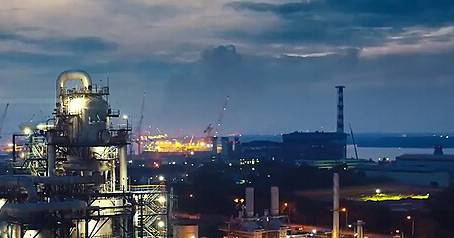Aug . 14, 2024 17:56 Back to list
Comprehensive Guide to PVC Irrigation Pipe Fittings for Efficient Water Management Systems
The Importance of PVC Irrigation Pipe Fittings in Modern Agriculture
In the ever-evolving landscape of modern agriculture, the efficiency and effectiveness of irrigation systems play a crucial role in sustaining crop yields and conserving water. Among the key components of these irrigation systems are PVC irrigation pipe fittings, which serve as integral connectors that ensure water is delivered precisely where it is needed. This article explores the significance of PVC pipe fittings, their advantages, and their various applications in agricultural practices.
Understanding PVC Pipe Fittings
PVC, or polyvinyl chloride, is a durable and lightweight thermoplastic material widely used in plumbing and irrigation systems. PVC pipe fittings come in various shapes and sizes, including elbows, tees, couplings, and connectors. These fittings are designed to connect different lengths of pipes, enabling the efficient transport of water from sources to crops. The robustness of PVC makes it resistant to corrosion, chemical degradation, and environmental stressors, ensuring longevity and reliability in various conditions.
Advantages of PVC Irrigation Pipe Fittings
1. Durability One of the primary benefits of PVC fittings is their durability. They can withstand extreme weather conditions, UV rays, and physical impacts without degrading. This resilience minimizes the need for frequent replacements, ultimately saving costs over time.
2. Lightweight Compared to traditional materials like metal or concrete, PVC fittings are significantly lighter, making them easier to handle and install. This lightweight nature reduces labor costs and installation time, allowing farmers to set up their irrigation systems more efficiently.
3. Cost-Effectiveness PVC fittings offer a cost-effective solution for irrigation systems. Both the initial purchase cost and maintenance expenses are lower than those associated with metal counterparts. Additionally, their longevity reduces the need for frequent replacements, resulting in long-term savings.
pvc irrigation pipe fittings

4. Versatility PVC irrigation fittings can be used in various irrigation systems, including drip, sprinkler, and surface irrigation. This versatility allows farmers to adapt their setups according to specific crop requirements and environmental conditions, optimizing water use and enhancing productivity.
5. Chemical Resistance Agriculture often involves the use of fertilizers and pesticides. PVC is resistant to most chemicals, ensuring that the fittings do not corrode or break down when exposed to these substances. This characteristic is vital for maintaining the integrity of the irrigation system and avoiding contamination of water sources.
Applications in Agriculture
PVC irrigation pipe fittings are applicable in diverse agricultural scenarios. Drip irrigation systems, which deliver water directly to the plant roots, often utilize PVC fittings to create a network of pipes that ensure efficient water distribution. In sprinkler irrigation systems, these fittings help connect pipes that transport water to sprinklers, enabling even coverage across large fields.
Furthermore, PVC fittings are advantageous in garden irrigation, where customization is essential. Gardeners can easily create unique layouts to cater to different plant types, ensuring optimal watering conditions.
Conclusion
In conclusion, PVC irrigation pipe fittings are a cornerstone of modern agricultural practices. Their durability, lightweight nature, cost-effectiveness, versatility, and chemical resistance make them an ideal choice for farmers seeking to improve irrigation efficiency and sustainability. As water scarcity continues to challenge agricultural productivity, investing in reliable irrigation components like PVC fittings is essential for ensuring the future of farming. By leveraging these innovations, farmers can enhance crop yields while practicing responsible water management, contributing to a more sustainable agricultural landscape.
-
PVC Transparent Sheet Roll - Durable & Flexible PVC Plastic Sheet Roll for Industrial & Home Use
NewsJun.24,2025
-
High-Quality PVC PPR Pipes and Fittings Durable ERA PPR Solutions
NewsJun.10,2025
-
High-Quality Large HDPE Sheets & Large Diameter PVC Pipe Durable Large PVC Pipe Supplier
NewsJun.10,2025
-
High Density Polyethylene Cutting Board - Durable & Food Safe
NewsJun.09,2025
-
3 Inch PVC Pipe for Durable Irrigation Affordable & Reliable
NewsJun.09,2025
-
Premium PPR Plastic Water Pipe Fittings - Durable & Leak-Free
NewsJun.09,2025

